A Confluence of Writing on Rivers -- Part 2 in a Series About Writing with River Themes
One of the best books I’ve found to celebrate rivers is a canoeing adventure, Mississippi Solo by Eddy L. Harris. At the age of 30 the author’s experiential journey of paddling the river from source to sea was also his right-of-passage to prove his own fortitude. He was probably the first Black American to make this journey over 3 decades ago in 1985.
I've just had the honor of getting acquainted with Eddy L. Harris via email. Harris is an author, filmmaker, and adventurer; he lives in France, but he grew up in St. Louis. And he recently completed a documentary about his second canoe voyage on the Mississippi River; again he traveled from the Headwaters in Minnesota to New Orleans -- this time with 30 years more wisdom and a renewed perspective on environmental stewardship and the human bonds with this river. Read on to learn more from his responses to my questions about his favorite places, current project, who he admires, and living in France during the Black Lives Matter Movement.
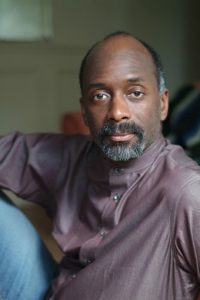
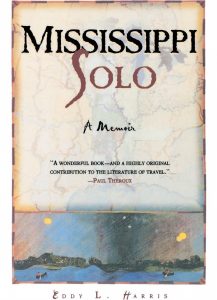
"Despite all our woes, racial and otherwise, in my experience when we greet each other as individuals and not as part of group-think, we treat each other pretty well. So it's time to turn off the evening news and go out and meet one another."
--- Eddy L. Harris
SB: Please tell me about one of your favorite places. What makes it a favorite place for you?
ELH: Keep in mind that I'm pretty much a city boy. I live in a little village in the French countryside and have to admit that I have developed a great admiration for being in the sticks. I have access to towns and cities nearby and when I take long walks into the rolling hills around here and I'm assaulted by explosions of yellow and green and gold from fields and fields of sunflowers and corn and wheat about to be harvested, I can't help but think this is so beautiful. I still love Paris and Budapest and Stockholm for urban beautiful, can never get over the expansive beauty and emptiness of Utah, where I go when I want a certain kind of isolation. And Lake Itasca which I once described as the most beautiful place on earth. Might as well ask how I most like my potatoes, fried, gratin, mashed. The answer would be yes.
SB: Other than the Mississippi, have you canoed or kayaked any other grand rivers from source to sea?
ELH: Bubble-bursting time. I'm not a kayaker nor canoeist. I've canoed some smaller waters and kayaked a time of two in the sea and on rivers in Columbia, but truth be told, I really canoed only twice. Each of those two times covered about 2,500 miles.
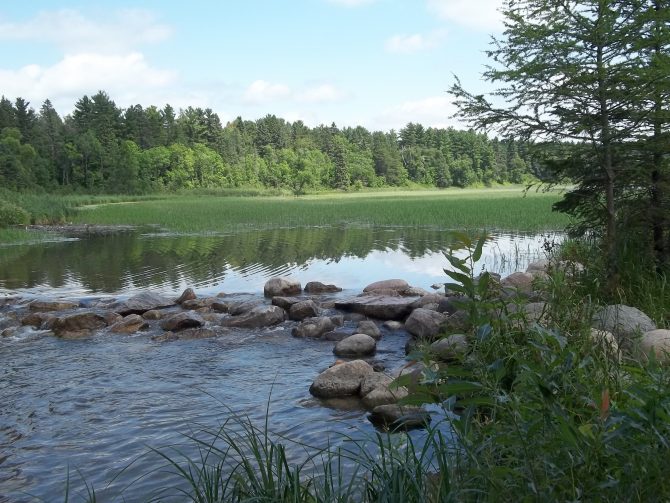
SB: Would you describe your current project?
ELH: I canoed the Mississippi a second time a few years back but with a camera crew this time. From that experience my team and I created a really fine film, [River to the Heart]. But because of its quiet nature it has yet to find any kind of broad distribution. Unfortunately, there is a lot of debt still attached to that project so on the one hand I'm still looking for distribution and finding outlets so people can view it. On the other hand, I'm writing a book about the same journey. I'm trying to capture what happened when the camera crew was not around. It's an exploration of the country, the river as metaphor for who we have been and who we are going to be but also who we are right now -- which is to say that despite all our woes, racial and otherwise, in my experience when we greet each other as individuals and not as part of group-think, we treat each other pretty well. So it's time to turn off the evening news and go out and meet one another.
SB: I wish you much success for this inspiring project! River to the Heart won Best Documentary in the Ozark Foothills FilmFest in 2018 and it deserves much more acclaim! How can anyone learn more about the film and offer support?
ELH: Watch the trailer for River to the Heart, opens a new window. Here is the GoFundMe link, opens a new window.
SB: Do you know of any other African American or Black paddlers who have journeyed down the entire Mississippi River?
ELH: I don't know if I was the first or only. I doubt if I'm the only nut out there, though.
SB: Who do you admire?
ELH: My mother, the toughest, strongest woman EVER. And I would match her mothering skills against anybody's mother. Also my father. We feared him (for sure), loved him (I suppose), respected him (no choice or we'd be dead) and only now after they both have disappeared do I recognize just how influential and instrumental they were. My most recent book, Jupiter and Me, opens a new window, (only published in France) was about my relationship with this ordinary man who did nothing extraordinary beyond going to work, coming with the paycheck, scaring his kids to grow up straight and strong, and who helped make me who I am. And finally: my sister and my big brother. With siblings like that, how could I not be who I have become -- independent, fairly smart, totally relaxed and comfortable in my skin?
SB: Would you tell me about your connection with James Baldwin? According to your Wikipedia page, opens a new window James Baldwin is one of your literary influences and like you he also moved to France from the U.S.
ELH: I think The Fire Next Time is the finest piece of essay writing I have ever read. I've read his fiction as well, some of which I like, some of which feels dated, but The Fire Next Time, opens a new window is nearly 60 years old and is as appropriate today as it was in the 60s. Yes, Baldwin moved to France but he was not part of my emigration process. Baldwin called himself a transatlantic commuter. It is a description that might apply to me but not one in which I see myself. Although I have to note that my writing, not unlike his, concerns an American identity. Oddly, I read more Baldwin when I lived in Harlem than I've read while living in France.
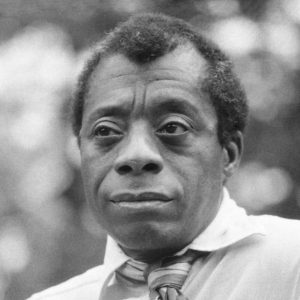
SB: Besides James Baldwin, who are some of your favorite authors?
ELH: Truman Capote, for one; In Cold Blood, opens a new window is a fabulous book. The kind of readable non-fiction I wish I could write. Also John Steinbeck; both Travels with Charley, opens a new window and The Grapes of Wrath, opens a new window. Plus William Least Heat Moon, opens a new window, Eudora Welty, opens a new window, Harper Lee, opens a new window, and William Faulkner, opens a new window.
SB: What motivated your move to France?
ELH: My move to France was initially about wanting to experience some place new and different. I had been to Europe a few times by then, just after high school and then to study while I was still at Stanford and at some other point while I was considering the move. I spoke a bit of French so that made the choice of which country to move to easier. Once I got here I fell in love with the lifestyle and the mentality and the ease of traveling from country to country. For a long time I went back and forth a lot, traveled a lot to Latin America, then to Africa. Finally, when I had nothing else to impede the permanence of a move, I settled in and that was that.
SB: Have you noticed a greater awareness recently of the Black Lives Matter movement in France?
ELH: The USA remains a cultural touchstone for Europeans and what happens in the States matters here. In the same way that the war in Vietnam and the struggles for Human Rights for Black Americans in the States in the 60s motivated the French and others to look at what was happening in their own countries, BLM has sparked the same kind of introspection. When I mentioned earlier that I appreciate the mentality of this place, part of it is the ability to introspect honestly and first of all to look abroad at the rest of the world, i.e. the USA, and then to see a connection between what happens elsewhere and what happens at home. Of course the French take every opportunity to take to the streets in protest. Any good cause will suffice. But it's not only the French but, other Europeans as well who have recognized the inequities in their own societies because of BLM.
SB: Would you share your strategies to stay safe if you are confronted by racist behavior, especially in remote or less diverse places?
ELH: I might be only able to answer this anecdotally, at least for starters. I rode my motorcycle to Alaska once and in some out of the way bar I was shooting pool with some guy who used the word nigga once or twice. I asked him to please cut it out. He was not being mean, by the way. He also did not stop. His reply was that black people use it all the time, why couldn't he? I told him finally that if he said it one more time I would shove my cue stick down his throat. He stopped. [Another time], I was confronted by a private security guard in an upscale neighborhood in suburban St Louis. He wanted to know what I was doing there and asked for ID. I told him I was going to see someone, refused to identify who and refused to hand over my ID. He called the real police who, when I refused in the same way, took me to the police station where I continued to refuse. I explained the US Constitution to them and finally they took me back. And once in some kind of small department store, I was being followed by a security guard. The more he followed me, the more I acted suspiciously. I led him on a little wild goose chase and finally left the store without buying anything.
On the one hand, I'm big enough and look tough enough that no one wants to mess with me, or possibly I'm too naive to notice. On the other hand, I am in fact fairly smart and always calm and know how far to push, although I recognize that these days you're likely to get shot just for being smart and for pushing at all. On the other hand, thanks to that mother and father I mentioned -- who, by the way, never had that talk that everyone these days is referring to about how to act with the police; we never needed it and never feared the police. Thanks to that mother and father, my inner self is not bound by what other people do or say. My dignity is not at risk because of someone else's stupid behavior. I was stopped by the police as I walked down a city street in St Louis because, according to them, I fit the description of a shoplifter. I tried the no thanks, I don't have to show you my ID routine, and they rather forcefully insisted. Maybe in fact on this occasion they did have probable cause; I don't know, although finally the only aspect of the man that corresponded was that he was black. I doubt he carried a motorcycle helmet. But the cops took my wallet, checked my ID and let me go. I doubt my ID revealed guilt or innocence; it must have finally been the description. My parting words: you should be ashamed of yourselves. And I went on my merry way undisturbed, un-angered, probably because it was not about me, only about them, and why should I get twisted because stupid people do stupid stuff.
On the other hand (how many hands can one man have?), if I were totally un-vexed by all these incidents, why do I remember them? I remember them because they are affronts to human dignity if not to my own. Because as unreal as my own life is, these things happen and they should not and I sympathize with those who are victimized and who haven't got the tools that I have to walk away unscarred -- or at least not scarred so deeply. We live in a racist world and the US has a particularly racial and racist history and way of being racist in this racist world. I detached myself from it long ago and luckily do not depend on jobs where I have to submit or bite my tongue and don't need to support or condone racist behavior. I can leave the store without buying, and it doesn't matter what the metaphorical product is. I am not obliged to support a racist enterprise or system with my money or my participation. I can do without. If you want my involvement you'd better at least pretend to be civil.
I recognize I'm in a singularly advantaged position and that others are not necessarily so.
I could go on and on but finally let me say that here in the French countryside where I live I am confronted everyday with the issue as I take long walks down lonely country roads, not because of what might happen but because of what never happens. No one looks more askance at me because I'm Black -- at least I don't think so, but how would I know? People by whose houses I pass tend to wave if they do anything at all. I don't have the anxiety I might if I were in a similarly isolated setting in the US, possibly because I know no one here is likely to be armed. And because, although this is a racist country in a racist world, the history is different. The one time, recently, I was confronted in that what are you doing here way that blacks in America are exposed to and which gets exposed more and more every day, as if because you are black you have no right to be here, I was approaching three young people who of course had never seen me before and asked if my car had broken down. I replied and then asked them the same question, as we were all out in the middle of nowhere, and the question applied to them too. Basically, what are you doing here? They were out tending to horses in a field somewhere. They only wanted to know if I needed help. The one fellow said that he had a car up the road and that if I needed to be driven somewhere he would take me.
I have since run into one of that trio a second time far from my village. He stopped me again, commenting on how much I seemed to like to walk. He asked if he could walk with me some time.
My strategy? I have no strategy. I'm just me. And the me I am seems to be enough.
SB: What question do you wish someone would ask you? And would you share your answer?
ELH: Red, white or rosé?... Red, of course.
SB: A toast to Eddy L. Harris for your thoughtful and candid responses! May you enjoy many more decades of joyful and fruitful endeavors!
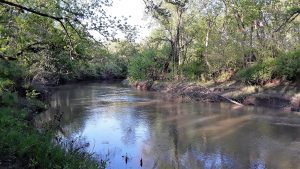
I am inspired to acknowledge traditional Native lands. In our region near the Kansas (Kaw) and Wakarusa Rivers, I want to honor the Dakota, Delaware (Lenape), Kansa (Kaw), Kickapoo, Lakota, Osage, Sac and Fox, Shawnee, and actually hundreds more tribes who find connection here with Haskell Indian Nations University. As Ken Lassman (author of the book Wild Douglas County, opens a new window and blog Kaw Valley Almanac, opens a new window) noted: “Haskell Indian Nations University is the United Nations of tribes, with members of hundreds of tribes coming here over the lifetime of its existence.”
Rivers represent literal and symbolic change and transformation. I hope these reflections will provide us with strength to stand up to injustice and boldly create equity everywhere we have influence. In future musings I’ll share magical river-connected stories, naturalists' explorations, memoirs of kayaking adventures and more via this series: A Confluence of Writing on Rivers!
Read part 1 of A Confluence of Writing on Rivers: Of Poetry and Rivers: Langston Hughes, Denise Low, and Katherena Vermette, opens a new window
Read part 3 of A Confluence of Writing on Rivers: The Water Dancer Lyrically Connects the River With Memory, opens a new window
Acknowledgements
Cheers to River Network, opens a new window and their apropos efforts for equity, diversity, inclusion, and racial justice! And thanks to Margo Farnsworth for introducing me to this organization.
Gratitude to the Kansas City Conservation Equity Network, opens a new window! A network that connects, inspires, and empowers the conservation community in the Kansas City region to increase diversity, equity, and inclusion in all our work to benefit communities and achieve conservation goals.
Heartfelt recognition to Friends of the Kaw, opens a new window for great stewardship, actively practicing equity, diversity, and inclusion, and their recent journey of the entire Kansas River!
Appreciation to Denise Low, opens a new window for helping me acknowledge each Native American tribe by their preferred name.
Thanks to author George Frazier, opens a new window for recommending that I read Mississippi Solo by Eddy L. Harris.
Thanks to author Randi Hacker, opens a new window for helpful kindness!
Thanks to author Patrick Dobson, opens a new window for helpful kindness!
Cover photo: Mississippi River Headwaters (Lake Itasca in Minnesota), photo by Tastocke, opens a new window. Creative Commons Attribution-Share Alike 3.0 Unported license, opens a new window.
Photo of James Baldwin by Allan Warren, opens a new window Creative Commons Attribution-Share Alike 3.0 Unported license, opens a new window
- Shirley Braunlich is a Readers' Services Assistant at Lawrence Public Library.

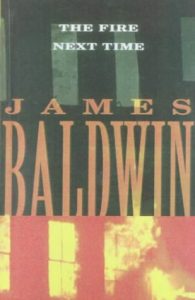

Add a comment to: Heartfelt Wisdom and A Wide View of the Mississippi River